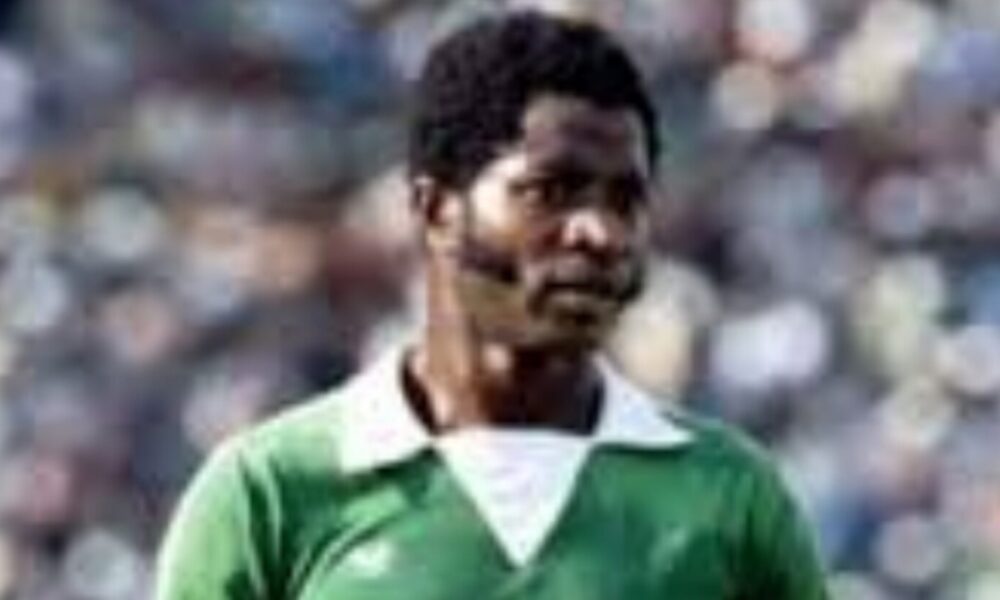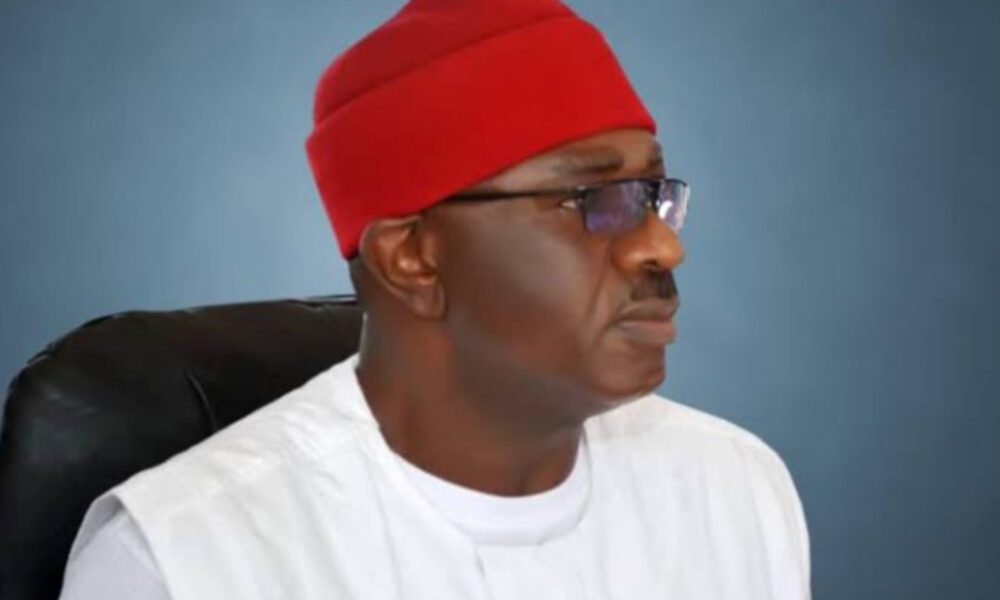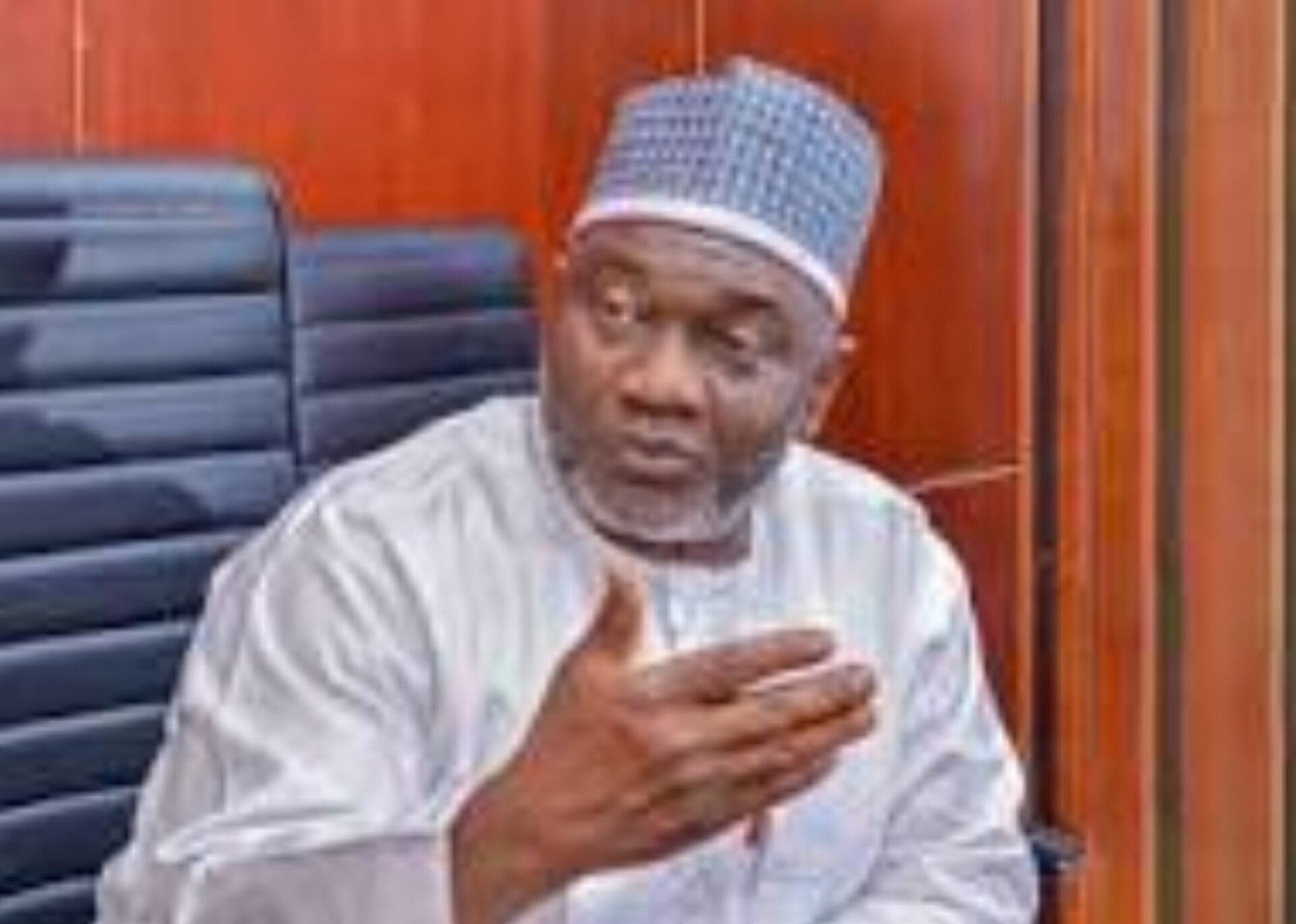By Tunde Olusunle
Nigeria’s legendary footballer, Segun Odegbami, recently set my mind on football and sports recollections dating back to many decades. He was nicknamed “Mathematical” during his active playing years as a superstar in the Green Eagles as the nation’s senior football team was then known, by the broadcast legend, Ernest Okonkwo. Okonkwo was easily one of Africa’s most linguistically flowery football commentators ever. With him doing his shift on match days from the studios of the Federal Radio Corporation of Nigeria, (FRCN), you were well served listening to your transistor radio. Yes, you had a better package following the man generally adulated as the “golden voice of Africa” in his time, than contending with scrambled images on your television set. The Nigerian Television Authority, (NTA) wielded monopoly over audiovisual broadcast those good old days. Odegbami was attired “Mathematical” because of the pinpoint exactitude of his passes and his mostly unmissable goal-bound shots on the field of play.
A septuagenarian like most of his contemporaries in the 1980 Green Eagles squad who won the African Cup of Nations, (AFCON) trophy for the first time for Nigeria, Odegbami has been multitasking since retirement many years ago. He’s been a sports pundit, a newspaper columnist and broadcast medium proprietor. He is one member of the older generation of Nigerian soccer stars and athletes who has managed his post-playing career very well. He is never in the public sphere for “crowd funding” of anything whatsoever. Odegbami has been on the road in recent weeks in Cote D’Ivoire host country of the 34th edition of the AFCON. He is literally looking out for his football grandchildren metaphorically speaking, the current crop of Super Eagles as they seek to make Nigeria proud at the ongoing biennial football fiesta.

Tellingly, Odegbami has exceeded his primary schedule as a recorder of events on the month-long tournament trail and also an inspirer of his soccer successors. He has functioned as a veritable Nigerian diplomat in the course of the ongoing AFCON. At least in one instance he visited a secondary school in the host country which is heavily populated by young Nigerians. Odegbami admonished the youngsters in that engagement, to be focused on their education and to remain impeccable ambassadors of Nigeria their homeland. Relevant officials of state should follow Odegbami’s good works attentively. His generation of footballers were invested with the national honour of “Member of the Order of the Niger,” (MON) when they won the 1980 edition of the tournament hosted by Nigeria during the regime of President Shehu Usman Shagari. Forty-four years after that recognition, and indeed in acknowledgement of their continuing commitment to the national cause, that generation of Nigeria’s soccer stars eminently deserve honour upgrades.
Odegbami has tirelessly served us interesting snippets from his Ivorian tour, providing sights and sceneries we may not get to glimpse when the whistle is blown and fiesty duels on lush green turfs arrest our gaze. I happened on one of his jottings mid-last week, as he journeyed with select soccer buffs from Abidjan to Bouake. It was the day the Super Eagles played the Bafana Bafana of South Africa specifically on Wednesday February 7, 2024, in Boauke, one of the host cities of this year’s AFCON. Odegbami’s notes referenced a 15-minute stopover in Yamoussoukro, the administrative headquarters of Cote D’Ivoire, en route Bouake, by him and his fellow voyeurs. They left Abidjan earlier in the day, Bouake-bound. He was nostalgic about Nigeria “of the good old days, of the mid-1970s to the very early 1990s with well tarred, smooth and sweet roads in many parts of Nigeria, which invited motorists and bikers to test the speedometers of their vehicles!” Such super-poetic lines from Odegbami who studied engineering at The Polytechnic, Ibadan.
As an aide in the Olusegun Obasanjo/Atiku Abubakar government, I exercised oversight on sports on behalf of the President, along with other assignments. There was always a minister for sports, but Obasanjo always desired to have his “eyes” in sporting matters so he could be more directly involved. There was never competition for turfs between me and any minister or chief executive of any of the sporting bodies. We had mutual respect for ourselves and worked for the same goals. Musa Mohammed, (a retired army Colonel); Samaila Sambawa and Bala Kaoje (of blessed memory) were some of the ministers of sports I collaborated with. Top sports administrators with whom I worked included Thaddeus Daniel Hart, Amos Adamu, Patrick Ekeji, Habu Gumel, Bolaji Ojo-Oba, Taiwo Ogunjobi (may his soul rest in peace), Fanny Amun, Sani Lulu Abdullahi, Emmanuel Ikpeme and so on.
I was the singular accredited bearer of the President’s goodwill messages to Nigerian players and sportsmen during such competitions. They were typically delivered in their dressing rooms to boost their morale before they charged to the field. Through me, Obasanjo also sent personalised messages to footballers and athletes who excelled and were recognised in various ways by international sporting bodies. Austin “Jay-Jay” Okocha and Vincent Enyeama should have copies of such correspondences in their files. I could make phone calls to the President from anywhere in the world and get him to speak with our representatives and to inspire them. Such was the kind of interest we ignited in Obasanjo for sports, away from misconceptions on the streets.
I remember attending four editions of AFCON in Tunisia, Egypt, Ghana and South Africa, variously. Top Nigerian officials were quartered in Monastir, a two and half hour drive from Tunis, the Tunisian capital, during the 2004 edition of the biennial. The Super Eagles played their first two games at the *Stade Mustapha Ben Jannet Stadium* in Monastir narrowly losing the first by a lone goal to Morocco. They thereafter unleashed unfeeling venom on *Bafana Bafana* of South Africa which they whitewashed by four goals to nil in the second group game. Nigeria’s last group game was against neighbouring Benin Republic played in Stade Taieb El Mhiri in Sfax, which Nigeria won by two goals to one thus qualifying for the quarter finals. There were those days of rest for players and officials after each game which we invested in sightseeing and in addition for me, souvenir assemblage. It was so very delightful driving through the Tunisian countryside taking in the therapeutic breeze all the way to Tunis. I won’t forget those stops we made to refresh and “stretched leg” as we would put it in Nigerian pidgin, like Odegbami, Mitchell Obi and Emmanuel Ayanbunmi did in Yamoussoukro en route Bouake the other day.
Egypt hosted the succeeding edition of AFCON and Nigeria devoured Senegal, Ghana and Zimbabwe very decisively. The Eagles aggregated all nine points from the three games in their pouch even as the stingy Super Eagles defence line conceded just one goal in a three-game run. All of Nigeria’s games in the group stages were played at the Port Said Stadium, Cairo. We stayed at *The Marriot* in the Egyptian capital. I was joined by my very good friend, Gbenga Ayeni, who flew in from Connecticut just to savour the carnival ambience of the tournament. Other friends like Ogirri Ajene, former deputy governor of Benue State, and Olu Barnabas, both sadly departed, jetted in from New Delhi and Abuja, just to catch the AFCON fun. We visited the great Sphinx of Giza, the pyramids of Djoser and the Egyptian Museum among other sites. Such is the overwhelming allure of the AFCON.
Obasanjo left office May 29, 2007 as did us his lieutenants. I had developed such an addiction for the AFCON that I paid my way to Ghana for the 2008 edition of the contest. I was in the company of two friends, Femi Ajisafe and Bankole Osuntola. The Super Eagles were domiciled in the twin-city Takoradi-Secondi where they played Cote D’Ivoire, Mali and Benin Republic in that order. Nigeria had a bitter start to the competition falling to a one nil defeat to our erstwhile football nemesis and hosts of the ongoing AFCON, Cote D’Ivoire, before grinding out a draw with Mali and thereafter, beating our Beninoise neighbours. I recall meeting a sulking Vincent Enyeama in the Nigerian team bus after the Nigeria-Cote D’Ivoire game, ranting and cursing about being overlooked in favour of his backup, Austin Ejide for the game the Eagles lost.
My friends and I relocated to Accra the Ghanaian capital after Nigeria’s group games, enjoying the refreshing coastline breeze as we drove through villages and communities. As we drove by Winneba town, I promptly remembered how one of my cheeky university classmates twisted the surname of another mate of ours, investing him with Winneba as alias! So here was Winneba after all, a historic fishing port in South Ghana, two hours away from Cape Coast. Ghana was renowned for export quality fabrics, a particular variety branded Akosombo by its ears. My team and I didn’t miss the opportunity of an exploratory excursion in the Accra open market. Shopping out there is much like doing so in any Nigerian market.
The 2013 AFCON very competently hosted by South Africa was no less memorable. It was a dutifully planned excursion with friends, even as we made all our travel plans by ourselves. Femi Ajisafe was also on the train, as was our departed compatriot, the well-known media practitioner, Onukaba Adinoyi-Ojo. The Super Eagles played Burkina Faso, Zambia and Ethiopia in stadiums in Nelspruit and Rustenburg. My friends and I stayed in the highbrow Sandton district, in Johannesburg from where we coordinated our shuttles. I won’t forget those South African highway watering holes, like the Ivorian variants of Odegbami and company. You can actually make a mobile picnic of your trips to match venues if you had your drinks, sandwiches and confectionery properly packed in your van. South Africa hosted the FIFA World Cup three years earlier so the country was very well prepared for the AFCON. The “rest areas” on the beltways were complete with bathrooms, mini-marts and fuel stations. In my team, I was the earliest and regular visitor to South Africa previously. To this extent I was in a position to advise on places of interest.
Soweto, a regular fixture since my days as a literature student in secondary school had forever been one destination I loved to visit. It seized my fancy since my earliest visit in 2004 with its many tourist attractions. The primordial private residence of Nelson Mandela, 8115 Vilakazi Street, Soweto which was once petrol-bombed by apartheid agents; *Bishop Desmond Tutu’s iconic house* and the *Hector Pieterson Museum and Library* have always fascinated me. I also relished visits to Pretoria the South African capital with its several sights and sounds. The Nigerian team tethered unconvincingly in the group stages of the 2013 AFCON, such that many fans and supporters like my friends and I who paid our ways considered it wasteful to continue to pickup avoidable bills away from home.
We all returned home because of the dodgy outings of our team in the opening stages of the contest. Somehow, the Super Eagles reinvented themselves. They suddenly became favourites for the trophy after brushing aside opposition from revered opponents like the Elephants of Cote D’Ivoire. … My return to Johannesburg for the finals was on the prodding of Enyinnaya Abaribe who was senate committee chairman on communications and who offered to underwrite my accommodation bills. My brother Bimbo Daramola then a parliamentarian substantially defrayed the cost of my return ticket. Nigeria nicked a one nil victory over the Stallions of Burkina Faso* in the finals to win the AFCON cup for the third time that February 2013. That finale in the calabash-shaped FNB Stadium, Johannesburg, also featured Nigeria’s afrobeats music star, D’Banj. So much for AFCON reminiscences prodded by the one and only Mathematical Odegbami himself!
Tunde Olusunle, PhD, poet, journalist, scholar and author is a Fellow of the Association of Nigerian Authors, (ANA).




